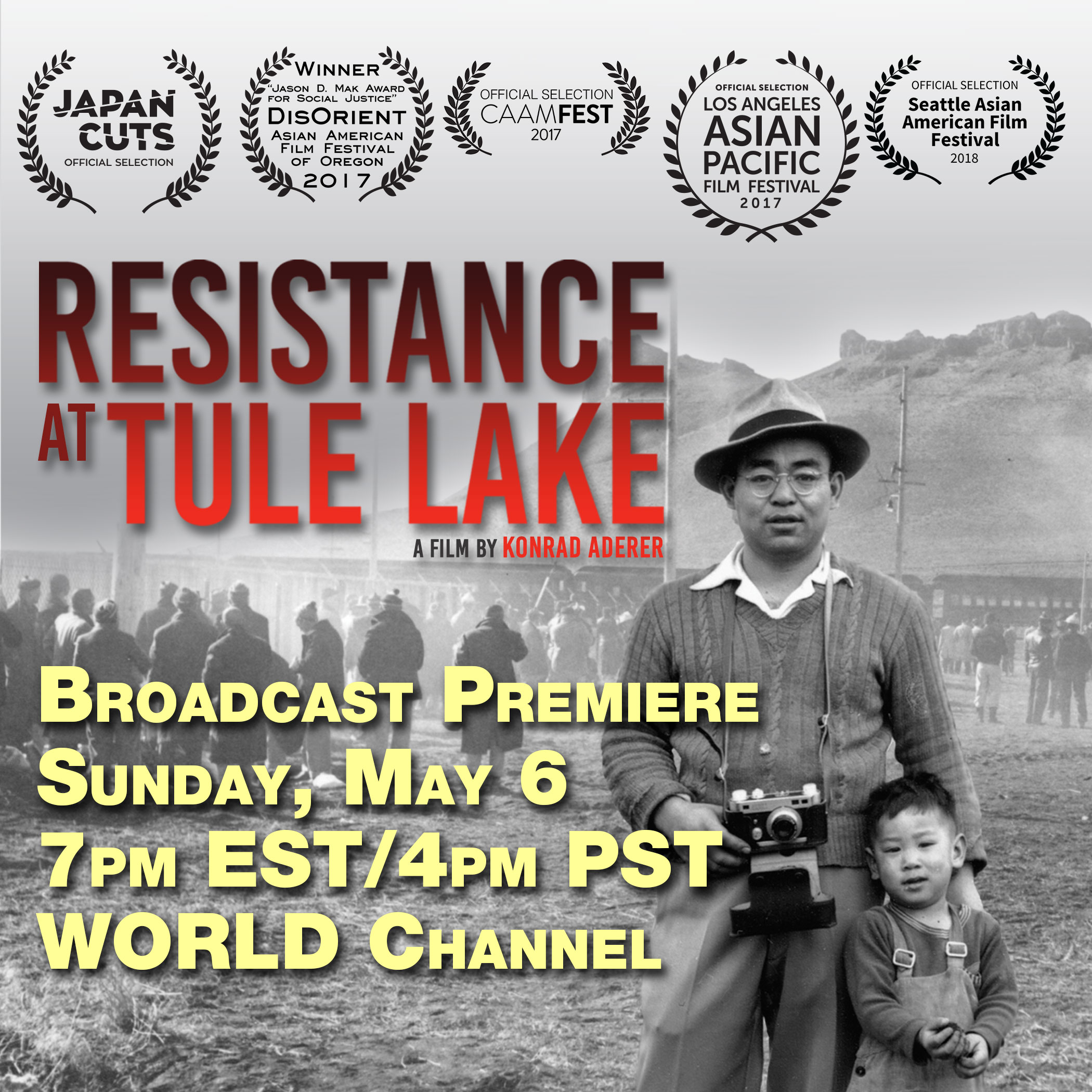 On July 19, 2018, Director Konrad Aderer presented RATL at the 2018 JACL National Convention, these are his reflections on the screening and discussion:
On July 19, 2018, Director Konrad Aderer presented RATL at the 2018 JACL National Convention, these are his reflections on the screening and discussion:
I was excited but not sure what to expect when the word finally came down in June that Resistance at Tule Lake would be screening at the Japanese American Citizens League (JACL) National Convention 2018. For months, Tule Lake Committee member Stan Shikuma (Seattle JACL) had been pushing for the documentary to be shown at the convention. Rob Buscher (Philly JACL, Director of Philadelphia Asian American Film Festival) also was championing the screening. The screening and my participation finally came about with the sponsorship of the Tule Lake Committee.
Stan told me there could well be objections among some JACL leaders to showing a film giving the views of “no-nos” who refused to swear loyalty to the United States during World War Two. At the time, the JACL pushed full cooperation with the mass incarceration program, and promoted military service as a way for Japanese Americans to prove their loyalty to the U.S. The JACL offered no support to Nikkei who protested throughout the war, and once it was over, they went further:
In February 1946, the national board of the JACL met during the Ninth Biennial National Convention in Denver, Colorado, and discussed what position they would take regarding all those who had protested their wartime treatment, including those who had renounced their citizenship and requested repatriation to Japan, “No-No” resisters, and draft resisters. In response, the board formally condemned all of them, contributing to decades of marginalization for Japanese Americans segregated at Tule Lake, Nisei draft resisters, and others labeled “disloyal” for their wartime resistance. The decision to condemn resisters en masse reinforced the organization’s decision four years previous to oppose any legal challenges that would result in test cases. (Densho.org)
So following my screening, I found it very moving that JACL National President Gary Mayeda stood up to say the leadership has a responsibility to acknowledge the hurt the JACL caused in condemning the resisters. In a previous meeting at the conference, he had with great emotion revealed his own family members’ decision to say “no, no” to the Loyalty Questionnaire. The JACL formally apologized to draft resisters in 2002. But no similar action has been taken to reconcile with no-nos and renunciants, as many I have met at the Tule Lake pilgrimages have called for.

Marge Taniwaki, Ken Nomiyama, Stan Shikuma, Konrad Aderer, David Inoue, Gary Mayeda
Still, I was told it was very significant that Gary Mayeda as well as JACL Executive Director David Inoue attended the screening. Over 60 people came out and stayed for lively discussion, though it was nearly 11 p.m. at that point. For the first time, no one asked about me or why I made the film. People went straight to questions about the different life paths taken by the thousands of Japanese Americans who renounced their citizenship, the motivations of Hoshi Dan members, and how the pictures of guards abusing Tule Lake prisoners were found. Stan Shikuma and Ken Nomiyama, who was born in Tule Lake, were on hand to share how, post-incarceration “Tuleans” were often too ashamed to disclose what camp they were in to their fellow Japanese Americans. People showed a real hunger for a deeper understanding of a collective trauma within the community that had been ignored or misunderstood for so long.
The JACL is today a vastly different organization than it was during World War Two. Still, the time is growing very short for any reconciliation to happen while some Tule Lake dissidents are still alive. This year, the JACL passed emergency motions to oppose the Muslim Travel Ban and the mass incarceration of immigrant families. In the coming year I hope to screen this film at JACL chapters in regions where it hasn’t been previously shown, and further the healing needed for the important work to be done.


